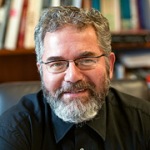Michael Zank is Professor of Religion at Boston University and Acting Director of the Elie Wiesel Center of Judaic Studies. We invited him to answer the question “What is Philosophy of Religion?” as part of our “Philosophers of Religion on Philosophy of Religion” series.
“Philosophy of religion” may well be a contradiction in terms, especially if we follow Leo Strauss’s definition of “philosophy” and “religion” where philosophy always starts from what is at hand, whereas religion starts from obedience to divine command or absolute truth.
But Strauss’s construal of philosophy and religion as opposites does not start from scratch. Instead, it proceeds from a critique of the most eminent modern philosophy of religion, namely, that of Hegel. For Hegel, the philosophy of religion is the manner in which the truth embedded in the history of religions is discovered as the dialectic unfolding of the spirit in historical and symbolic form. To deny that means to make religion and philosophy irreconcilable opposites, without being able to say—on rational grounds—in whose favor to decide. If religion and philosophy cannot be reconciled other than by irrational decision, religion wins, since it is contingent on irrational decision (fideism as first philosophy). But philosophy (and hence: science and the university) is contingent on a decision in favor of reason; in other words: unbelief or, at least, agnosticism.
If I am not very much mistaken, two things obtain. Without the thick history of belief, human culture would be impoverished; and without radical critique of every belief, human culture is beholden to illusion. What we call the “philosophy of religion” is a discipline that engages both perspectives: the radical critique of religion and the theological critique of rationality. As such, our pursuit is vulnerable, debatable, “marginal” in the sense of being positioned on the border between affirmation and denial. Some of the most engaging modern thinkers were reaching for a “philosophy of religion.” Just think of classic texts by Spinoza, Hobbes, Locke, Kant, Hegel, Schopenhauer, Feuerbach, Marx, Nietzsche, Husserl, Freud, Barth, Rosenzweig, Buber, Gadamer, Whitehead, Bloch, and Butler.
Dare I say that philosophy of religion, though perhaps paradoxical, is the least boring type of philosophy? And why is this the case? Is it, perhaps, because it is about the “one thing that matters”? Or is it because, by considering the “truth” of religion, we are moved closer to what is essential about our humanity?

